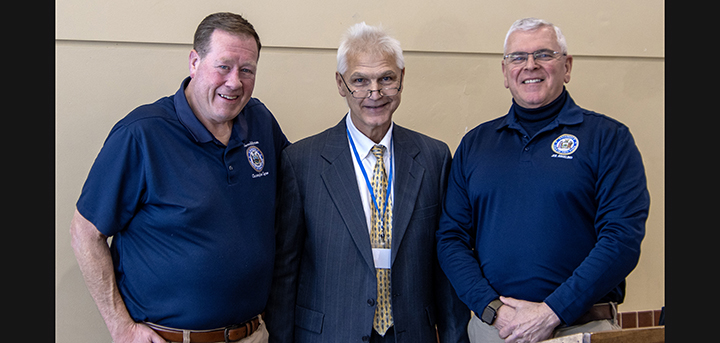Religious relic goes missing from local church
NORWICH – A 145-year-old religious relic has gone missing.
At some point in the past year, a pair of ancient pewter chalices were removed from their display case in the Broad Street United Methodist Church’s congregation hall. While one of the chalices has since been recovered, the other is still missing. Church authorities were unaware the prized artifacts were unaccounted for until they began gearing up for their June heritage celebration and discovered to their horror the chalices’ display case had not been properly fastened shut.
The chalices are part of a communion service set along with a large solid pewter flagon. The communion service set was gifted to the church by one of its founders, Ansel Berry, in 1870, and was one of only five sets ever crafted by Reed and Barton, placing the date of its conception somewhere between 1865 and 1870. The set was later lost to the church when its caretaker, Mr. King, moved away from the region. The pewter communion set traversed the hands of an assortment of antiquity dealers before it fell into the possession of a Mr. John J.D. Feyko. Feyko conducted a thorough inquiry of the set’s origins, discovering the Broad Street United Methodist Church to be its rightful owners. After a restoration of the antiques, Feyko donated the set back to the church with no stipulations for the parish’s 100-year anniversary in 1973 of the construction of its current place of worship.










Comments